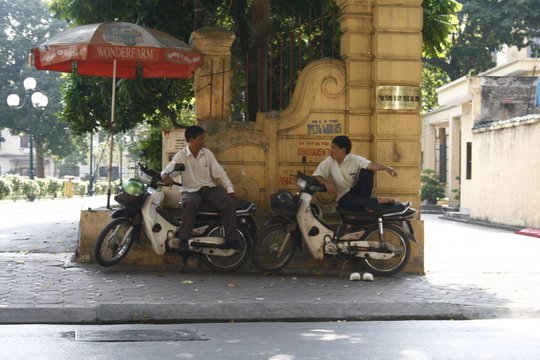Die Erklärung ist das Ergebnis eines Workshops in Mandalay (Myanmar), das sich mit Investitionsschutzabkommen befasste. Die Veranstaltung wurde organisiert von der "Myanmar Alliance for Transparency and Accountability" (MATA), dem "Karen Environmental and Social Action Network" (KESAN), Paung Ku und dem Transnational Institute (TNI).
Myanmar hat kürzlich ein Investitionsschutzabkommen mit Japan unterzeichnet, eine Vereinbarung mit Hongkong steht und mit der EU finden gegenwärtig Verhandlungen statt.
Die Teilnehmenden drückten ihre Besorgnis aus, dass die Unterzeichnung eines Abkommens zum gegenwärtigen Zeitpunkt die weitere demokratische Entwicklung in Myanmar gefährden könne. Die Unterzeichnung eines Investitionsschutzabkommens würde es möglich machen, dass zukünftige politische Veränderungen durch ausländische Investoren in Frage gestellt werden können, wenn ihre Investitionen beeinflusst werden.
Auf diesem Hintergrund unterzeichneten die TeilnehmerInnen aus Myanmar die folgende Erklärung, die bis heute von 233 Organisationen aus Myanmar unterzeichnet worden ist.
Statement on Investment Treaties, Mandalay, June 2014, 21
We learned that the European Union and the government of the republic of the Union of Myanmar will negotiate an international investment treaty (IIA).
We, civil society organisaties , have learned that within IIA or a Bilateral investment Treaty (BIT) foreign investors can bring cases against governments through investor-state dispute settlement (ISDS) mechanism at international tribunals, while the state or communities can not sue the investor. In 2012 there were a total of 518 known cases brought through ISDS. An average case costs 8 million USD in legal fees alone, while claims for compensation go up to billions USD.
We also learned that IIA/BIT severely limits the capacity of the government to put in place policies in the public interest.
The threat of a potential case brought by an investor to a state through ISDS has a chilling effect on policy making. An actual claim makes the implementation of policy very expensive, both in terms of the award allotted and the legal fees involved. The last years have seen a steep increase in the number of cases brought by foreign investors to international arbitration tribunals globally.
Today 66 people from 43 Myanmar civil society organisationsbelonging to several CSO networks met in the Golden Country hotel in Mandalay to discuss the following concerns:
- There are no concrete national land policies and laws in place that secure the rights of Myanmar citizens vis a vis foreign investors
- There are no laws protecting ethnic minority rights under the current reform process
- There is a need to develop policies and adopt laws that control the behaviour of foreign investors and allow them to be sued when they violate human rights
- Environmental and social problems, caused by existing foreign investments have not been addressed, such as Myitsone hydropower project, Lethpadaung copper mine, Salween hydropower project, landgrabbing etc.
- There is currently no stable peace in Myanmar. If we sign investment treaties at this moment, we will not have taken into account the concerns and aspirations of ethnic communities.
- There is a need for a public, broad and participatory consultation process in order to decide whether or not Myanmar needs investment treaties.
Given the above concerns we are of the opinion that no investment treaties should be signed.
If countries are concerned about the weak legal system in Myanmar we invite them to assist Myanmar in the building of a strong and independent judicial system, instead of looking for recourse for their investors through BITS and ISDS.








